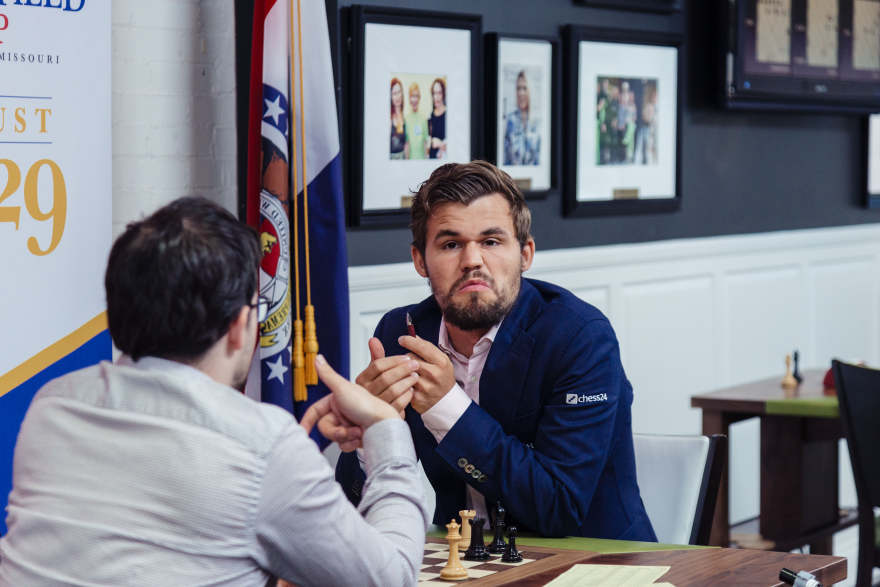Among the general public, chess has a reputation for being more refined and classy than other sports.
This seemingly positive reputation actually has a negative effect on chess. It leaves people with the impression that chess is too boring and sophisticated for the average person to enjoy.
In reality, a competitive chess game is closer to a boxing grudge match than this imagined polite game. Perhaps the best way to characterize a high-level chess game is with these words from legendary world champion Bobby Fischer: “Chess is war over the board. The object is to crush the opponent's mind.”
As Fischer said, professional chess players are out for blood. They seize any opportunity to win the game, be it on the board, clock or even in the opponent’s head. This creates an intense atmosphere at the board that is palpable, to even the least knowledgeable of onlookers.
I have seen this personally during major tournaments at the St. Louis Chess Club. Tourists and curious passersby often walk up to spectate in the tournament hall with no experience in chess. By the time they leave, they almost always have a comment on the surprising intensity of the players.
This battle of wills is part of what makes chess so interesting to both play and watch. The players give everything they have to take out their opponent and often leave the playing hall both mentally and physically drained. Clearly, chess is not a refined game for the elite, but instead a battle to be fought by anyone with the drive to win at all costs.
Perhaps, then, it is time to change the public’s view on chess to a more realistic one, and this process has already begun. While essentially all of the top players maintain a great respect and admiration for each other’s play, some have begun to break the mold of the stuffy, sophisticated chess player.
Notably, top Dutch player Anish Giri has garnered a slight reputation as a trash talker with other members of the top 10 — especially world champion Magnus Carlsen.
In 2018, Giri took to Twitter to say Carlsen seemed particularly nervous regarding the upcoming Candidates Tournament to determine a challenger for the world championship title. Carlsen had plenty to say in response, telling Giri, “Win a tournament for the first time in your life, and maybe people will start taking you seriously."
Many frowned upon this exchange, believing that chess should somehow be above Twitter banter, but this may be what chess needs to continue growing. People cannot relate to players who are so esteemed and respectable that they only have kind words for their opposition.
Both Carlsen and Giri were displaying the competitive nature that is essential to chess at the highest level, and this exchange will help people to see chess as a sport with impassioned players.
Similarly, the chess community is divided on players who show their emotions after games. For example, this video of Magnus Carlsen showing frustration after a tough loss became a topic of discussion among chess players everywhere.
Perhaps most importantly, this small outburst garnered over 1.5 million views on YouTube. The emotion of the competitors is a massive draw in any spectator sport, and chess is no different. These players are furious when they lose and often elated when they win. There is no reason they should be expected to withhold these emotions for the sake of an outdated, flawed view of chess as a game for high society.
Thus, chess is every bit as intense as any other sport, and chess players are every bit as invested and impassioned as competitors in other major sports.
This makes chess incredibly interesting for both spectators and players alike, and the public should know about it. So is it time for the perception of chess to shift to one of a competitive sport rather than one of a revered game? I say yes.
Caleb Denby is a national master from the St. Louis area. He grew up playing chess at the St. Louis Chess Club, where he currently works as a senior chess associate. The St. Louis Chess Club is a partner of St. Louis Public Radio.
Send questions or comments about this article to feedback@stlpublicradio.org.



